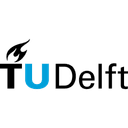This course is part of Quantum 101: Quantum Computing & Quantum Internet.
This comprehensive course from QuTech Research Center at TU Delft examines the fundamental hardware components of quantum computers. Students learn about different qubit implementations, including superconducting, spin, NV center, and topological qubits. The curriculum covers quantum gates, basic operating principles, and the physical realization of quantum computing systems. Designed for those with technical backgrounds, this course provides cutting-edge insights into quantum technology development.
4.5
(10 ratings)
28,567 already enrolled
Instructors:
English
English
What you'll learn
Master the fundamental building blocks of quantum computers
Understand four major types of solid-state qubit implementations
Analyze quantum gate operations across different qubit types
Explore physical realization of quantum computing systems
Grasp current challenges in quantum hardware development
Skills you'll gain
This course includes:
PreRecorded video
Graded assignments, Exams
Access on Mobile, Tablet, Desktop
Limited Access access
Shareable certificate
Closed caption
Get a Completion Certificate
Share your certificate with prospective employers and your professional network on LinkedIn.
Created by
Provided by

Top companies offer this course to their employees
Top companies provide this course to enhance their employees' skills, ensuring they excel in handling complex projects and drive organizational success.





Module Description
This advanced course explores the physical implementation of quantum computers, focusing on the hardware aspects of quantum computing systems. Students learn about various qubit types and their implementations, including superconducting Transmon qubits, Silicon spin qubits, diamond NV center qubits, and topological qubits. The curriculum covers fundamental quantum computing concepts and practical aspects of quantum gate operations across different qubit implementations. Through expert instruction from QuTech researchers, participants gain deep insights into the current state of quantum computing hardware.
Fee Structure
Individual course purchase is not available - to enroll in this course with a certificate, you need to purchase the complete Professional Certificate Course. For enrollment and detailed fee structure, visit the following: Quantum 101: Quantum Computing & Quantum Internet
Instructors

8 Courses
Pioneering Leader in Semiconductor Quantum Computing
Menno Veldhorst serves as an associate professor at QuTech, Delft University of Technology, where he has established himself as a pioneer in semiconductor quantum computing. His groundbreaking achievements include the first-ever demonstration of single and two-qubit gates in silicon during his postdoctoral research at the University of New South Wales, which was recognized as one of the top-ten breakthroughs in physics in 2015. Leading his research group at QuTech, he has achieved numerous significant firsts in the field, including the demonstration of a planar germanium quantum dot, a single-hole qubit, two-qubit logic in germanium, a four-qubit quantum processor, and a 16 quantum dot system operated with shared control. His innovative work continues to push the boundaries of quantum computing technology, particularly in the development of semiconductor-based quantum systems.

4 Courses
Pioneering Leader in Quantum Computing and Nanoscience
Lieven Vandersypen, born in Leuven, Belgium in 1972, serves as Director Research at QuTech and Antoni van Leeuwenhoek Professor at TU Delft, where he leads groundbreaking research in quantum computing and nanoscience. After completing his Ph.D. in Electrical Engineering from Stanford University in 2001, where he made history by implementing Shor's quantum algorithm to factor the number 15 using nuclear spins, he joined TU Delft and has since pioneered quantum computing based on electron spins in semiconductor quantum dots. His research achievements include being the first to manipulate individual electron spins, implementing quantum algorithms on electron spins, and demonstrating quantum interaction between electron spins and microwave photons, with recent work achieving 99.87% single-qubit and 99.65% two-qubit fidelities. As one of QuTech's founders and a key architect of the Quantum Inspire project, he has fostered significant industry partnerships, including a long-term collaboration with Intel. His exceptional contributions have earned him numerous prestigious awards, including ERC Starting, Synergy, and Advanced grants, the Spinoza Prize, and fellowship in the American Physical Society, while his vision continues to drive advances in quantum dot spin qubit processors and many-body physics research
Testimonials
Testimonials and success stories are a testament to the quality of this program and its impact on your career and learning journey. Be the first to help others make an informed decision by sharing your review of the course.
Frequently asked questions
Below are some of the most commonly asked questions about this course. We aim to provide clear and concise answers to help you better understand the course content, structure, and any other relevant information. If you have any additional questions or if your question is not listed here, please don't hesitate to reach out to our support team for further assistance.



